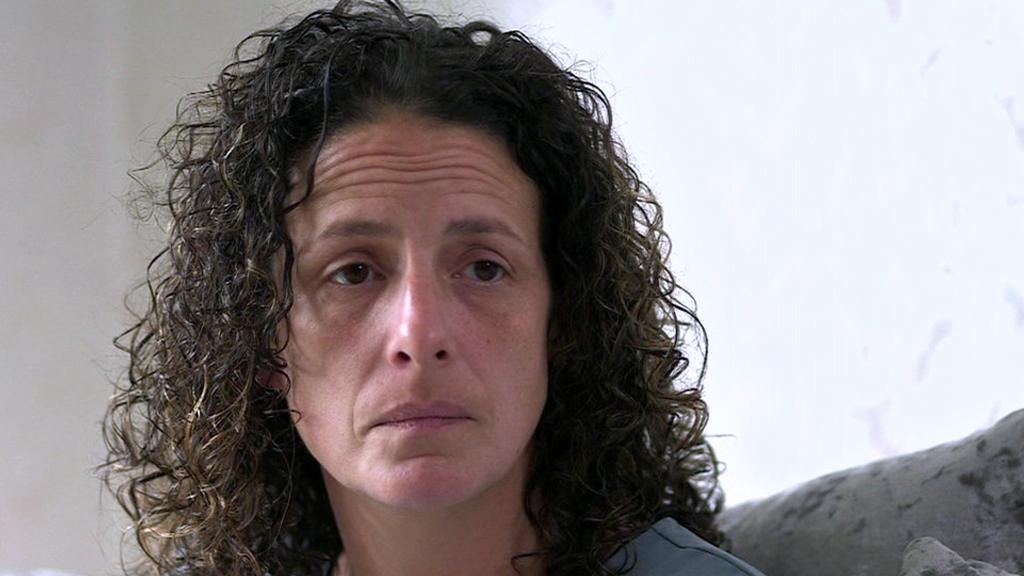'My dad was controlling but I didn't think he could kill my mother and sister'
- Published
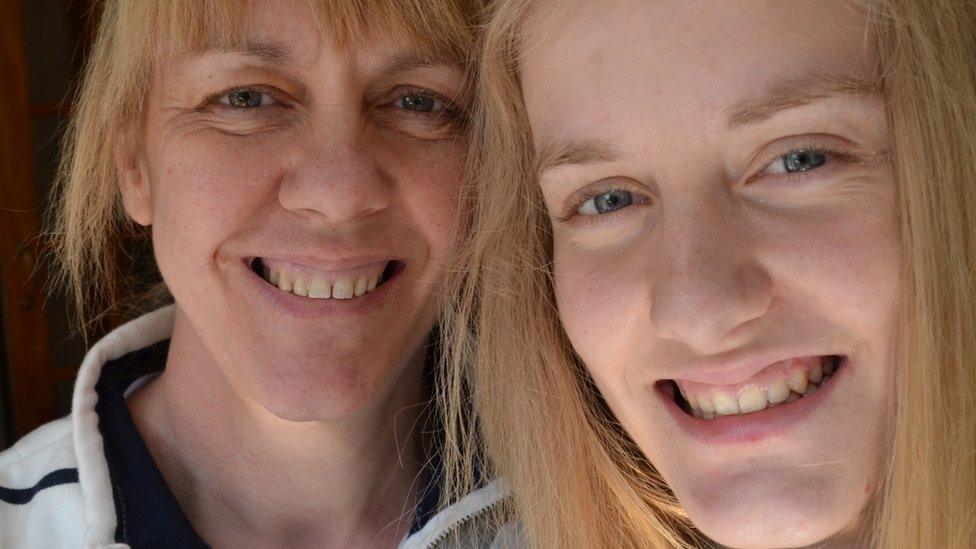
Claire Hart was shot with daughter Charlotte days after leaving her husband
Luke Hart could never have foreseen his "controlling" father would kill his mother and sister in July 2016.
Claire Hart, 50, was shot dead outside a swimming pool in Spalding, Lincs, with daughter Charlotte, 19, days after finally moving out of the family house.
Luke and the other surviving brother Ryan say dangers can easily be missed.
They spoke as figures showed more than 113 women in England, Northern Ireland and Wales in 2016 were killed by men - two thirds a current or ex-partner.
The Femicide Census, external, based on information from police and media reports, found 85 of the 113 women killed by men last year were in their own homes.
There were 100 women killed by someone they knew - including 78 by an existing or former partner.
According to the figures, more than three quarters of women who were killed by a former partner died within the first year of separating from them.
'Willing to kill us all'
Lance Hart, 57, shot his wife Claire and daughter Charlotte with an unregistered single-barrel shotgun before turning the weapon on himself.
Claire had left her husband, moving out of the family's home in Moulton four days earlier.
Luke, 28, and his brother Ryan, 27, both engineers, were working abroad at the time of the killings but had helped their mother and sister find a new rented house a few weeks before.
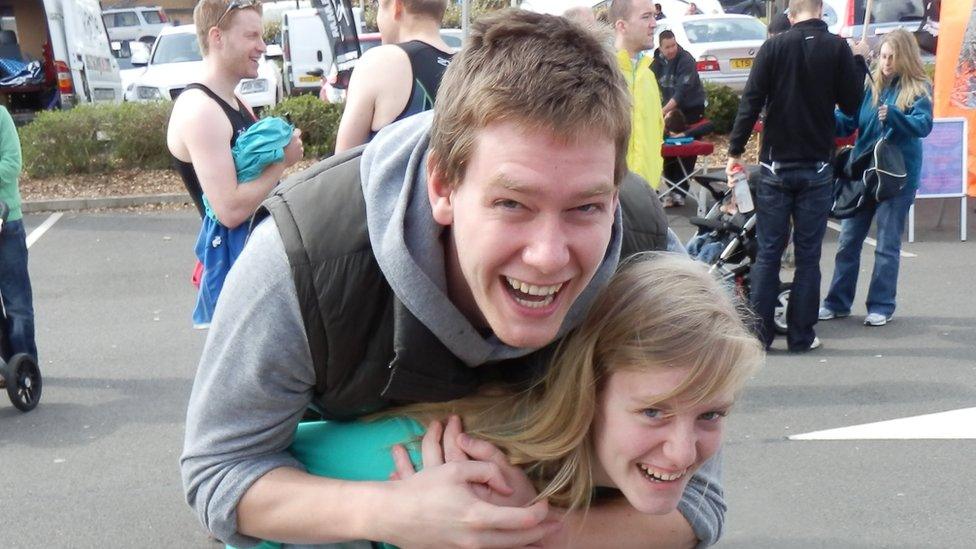
Luke with his sister Charlotte
"I don't think anything could ever, no matter how bad it was, lead you to expect what happened," Luke said.
"The second we stepped out of line, he was willing to kill all of us and I don't think anyone appreciated that."
In a newspaper interview earlier this year,, external the brothers talked about how their father "rationed" Claire's supermarket job wages.
Recalling growing up, Luke told the BBC: "Our father didn't need to hit us. He generated enough fear in ways that were subtler."
He added: "People fail to appreciate that many victims of abuse are just incredibly resilient people dealing with the traumas of their lives the best way they can.
"A lot of education needs to be done in terms of abusive behaviour and also the way people will respond to abusive behaviour. I didn't understand them myself, none of us did."

Ryan with Charlotte
According to figures from the Office for National Statistics,, external a total of 601 homicides - cases of murder, manslaughter and infanticide - were committed in England and Wales in 2016.
Figures for 2016 have not been published in Northern Ireland but there were 17 homicides in the year to the end of March 2017 and 21 in the previous 12 months.
The Femicide Census says the total number of killings of women by men in 2016 is thought to be higher than the 113 it recorded because a number of cases are still under investigation and police forces did not provide some details to its freedom of information requests.
New measures
The figures were compiled by academic Karen Ingala Smith and the domestic abuse charity Women's Aid who say they make clear the "disparity in the sexes of the victim and perpetrator" was not always clear from official crime data.
Ms Ingala Smith, chief executive of the organisation nia, which campaigns to end violence against women, said: "By breaking the barriers through which we contextualise violent crime, we're able to build a different picture, a broader picture, about what causes and influences violence."
Katie Ghose, chief executive of Women's Aid, called on the government to provide a "long-term and sustainable funding model for a national network of refuges... [to] ensure that every woman can safely escape domestic abuse".
The Home Office said the number of refuge spaces available in England has increased by almost 10% since 2010 to 3,810 this year, while local authorities are overseeing new schemes that allow victims to remain in their homes.
A spokesman added: "This government is determined to ensure that anyone facing the threat of domestic abuse has somewhere to turn to, and that perpetrators are brought to justice."
He said domestic violence prosecutions have increased by 26% and convictions by 33% since 2010 in England and Wales, while the government's approach will be transformed by measures in the draft Domestic Violence and Abuse Bill.
- Published1 June 2017

- Published16 August 2016
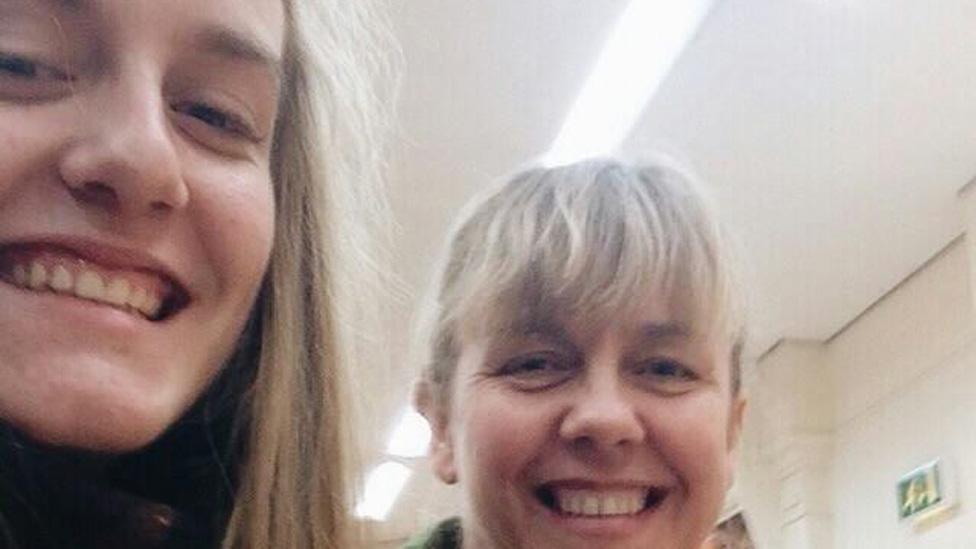
- Published21 September 2016
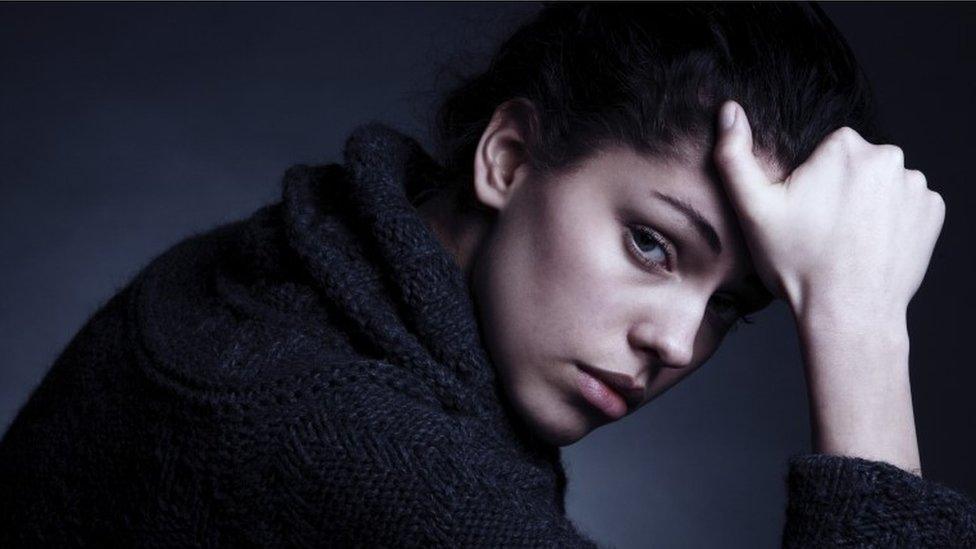
- Published18 February 2017
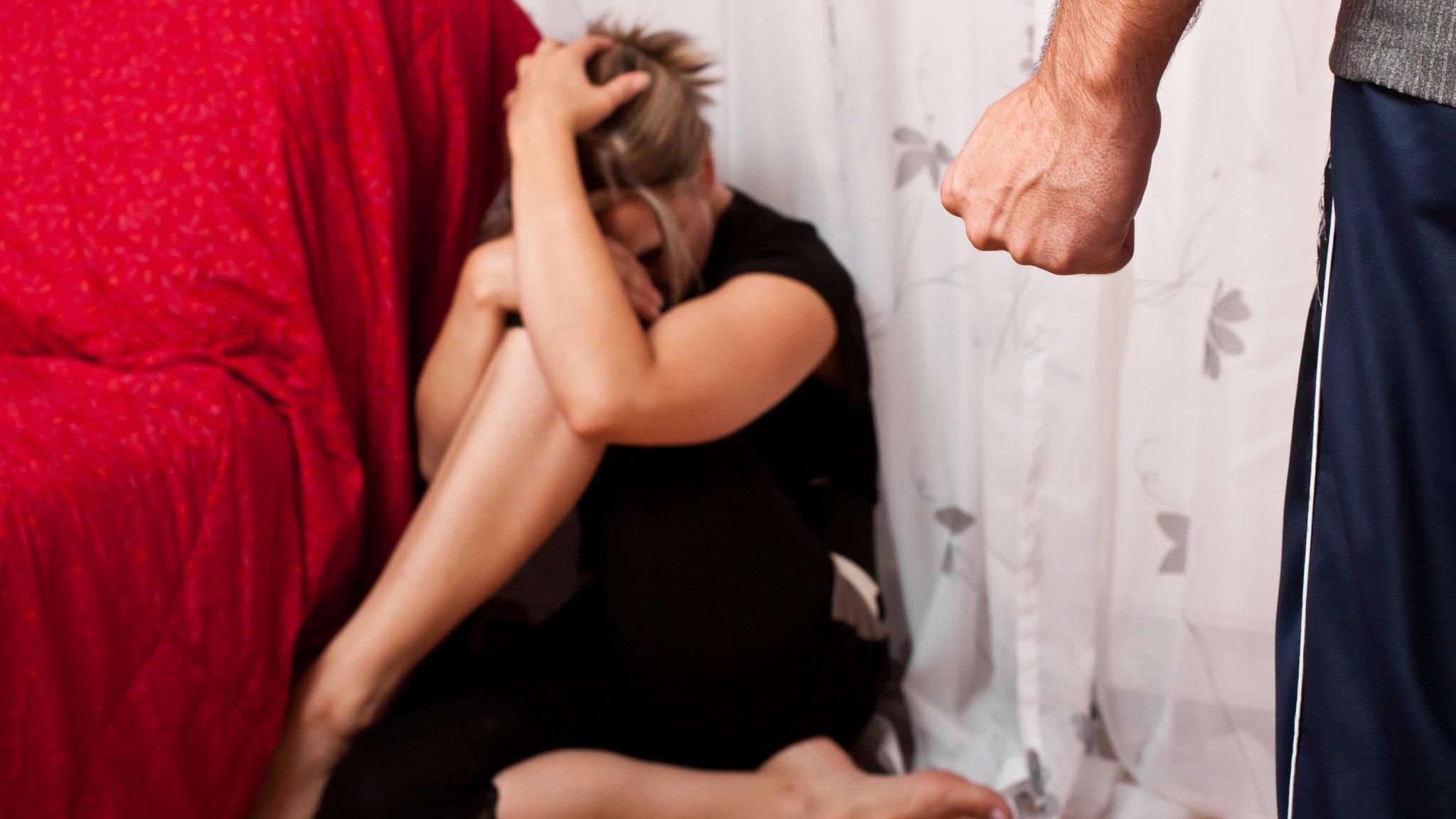
- Published31 October 2017
